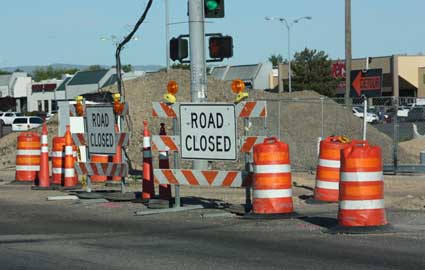“Their Fault”: The Mindset of Defensive Driving

“Their Fault”: The Mindset of Defensive Driving
Boredom is a feeling we all know too well. It permeates many of our daily activities and colors our perception of the mundane tasks we carry out at home, work, or school. Usually, boring activities are necessary or carry some sort of significance. I doubt many people have a jolly time cleaning dishes or just can’t wait to do the laundry, but at the end of the day, we know we need to perform these tasks for our own good. However, there exists a truly sadistic type of boredom: that born of incredibly, unbelievably useless activities. It swoops down like a vengeful demon, sometimes in the form of used vacuum cleaner salesmen that travel door-to-door, peddling their outdated wares. Other times it takes the form of the garrulous neighbor who insists on telling you why he painted his house maroon. The list goes on, but the linking factor of these draining encounters is that they rely on the basic decency of the listener to not interrupt the speaker. Only the most heartless human would stand up and say, “Stop! I don’t care one bit about the speckle paint on your garage!” or “I don’t want to hear about how well your Grandma is doing!” However, there is one truly insidious type of uselessly inflicted boredom, one that is the bane of my own existence: the driving story.
You know exactly what I’m talking about, or at least you will after I explain what it is. Essentially, it involves someone saying something “interesting” happened to them on the road, and in the speaker’s lengthy description of what minor accident almost happened, the poor saps that have been forced to listen almost wish that the speaker had been caught in an accident that would have prevented the speaker from showing up to tell their boring story. The exchange usually sounds like this:
“Oh, Martha, you won’t believe what happened to me out on the road today!”
“Why, what happened?” (The listener has already been ensnared by the speaker, and must now sit through the story).
“Well, I was driving down Meridian Avenue on the way to pick up the kids from that adorable little yoga studio I enrolled them in, and I started to change lanes so I could turn left onto Spruce Street. That’s when this BIG sports car screams down the street, and trust me, you won’t believe it, he cut me off! The absolute nerve! Those sports car drivers always think they own the road, and those motorcyclers too! And don’t even get me started on trucks!”
WOW, WHAT A FANTASTIC STORY! Now I know the amazing fact that other drivers, gasp, cut people off! Unless you were rear-ended by George Clooney or saw an eagle land on your hood, I don’t want to hear your driving story. If there is one benefit of these forsaken little tales though, it’s that they illuminate how we see accidents: it’s ALWAYS “their fault.” Rarely have I heard someone cop to being the direct cause of a crash; there was always “something” else, be it a distracted driver, rowdy passengers, or “I was having a bad day.” However, drivers can take charge through the use of Defensive Driving.
First, we must acknowledge that no matter how well prepared we are, accidents will happen on the road. Accepting this fact is the first step to towards driving defensively. It’s literally in the title: driving “defensively” is only necessary because others drive as if they’re on the “offense,” recklessly disregarding others and traffic laws. This is where it’s common for drivers to blame accidents on others, and in the case of reckless drivers, accusing them is completely logical. However, driving defensively involves recognizing risks and appropriately responding to them, not blaming others afterward.
So how do you practice defensive driving? A short essay is no place to teach such a complicated topic, but what I can impart is the appropriate mindset, as demonstrated in my rant against boring driving stories. The focus of accidents should not be on the people who cause them, but rather on the people who can prevent them. If someone comes barreling down the freeway at 100 MPH, there’s little that can deter their dangerous behavior (save for a police siren). Are they in the wrong? Completely, but rather than bemoan their lack of common sense, take actions to prevent any harm to yourself and those around. This could take the form of distancing yourself from the dangerous driver or even notifying law enforcement personnel. This is the mindset of defensive driving: minimizing risk to yourself by identifying hazards around you.
Now here’s a kicker: what if you’re the hazard? Sadly, drivers who are knowledgeable enough to recognize when they are a hazard rarely end up as hazards in the first place. It’s the drivers who don’t know who are the real danger. I know a close friend who drives as if his car will disintegrate if he dips below 60 MPH, and constantly complains about the “stupid” drivers around him, and remains unaware or uncaring that it’s his own behavior that gets him into so many accidents. Traffic school can help you to identify dangerous habits such as this. There are also times when other factors that are initially out of your control can make you into a hazard. Burnt out tail signals, flat tires, the transport of large cargo, and other situations present a danger to other drivers (and yourself). While those around are hopefully aware of any danger and will drive accordingly, it’s best to drive under the assumption surrounding cars are not aware of you (a key defensive driving strategy that applies at all times, but especially in situations like this). If your turn signal is burnt out, don’t swing into traffic expecting others to anticipate your move: use hand signals, or better yet, wait for a natural gap to open up in traffic.
Thinking in the mindset that Defensive Driving requires can be difficult, partly because it puts so much responsibility on defensive drivers rather than on the reckless ones who cause accidents. In the end though, isn’t the extra strain worth it to avoid costly, stressful, and potentially fatal accidents? Definitely, especially if it helps to curtail the pesky nuisance that is the driving story.
Written by Ryan Chase
Reasons to take Comedy Driving Defensive Driving
- Flexible Schedule
- Email Delivery Available
- Unlimited Log-ins
- State Approved
- No Final Exam
- Animated Course
- Free Audio and Video
- Comedic Course
- Live Phone Support
- No Hidden Fee’s









